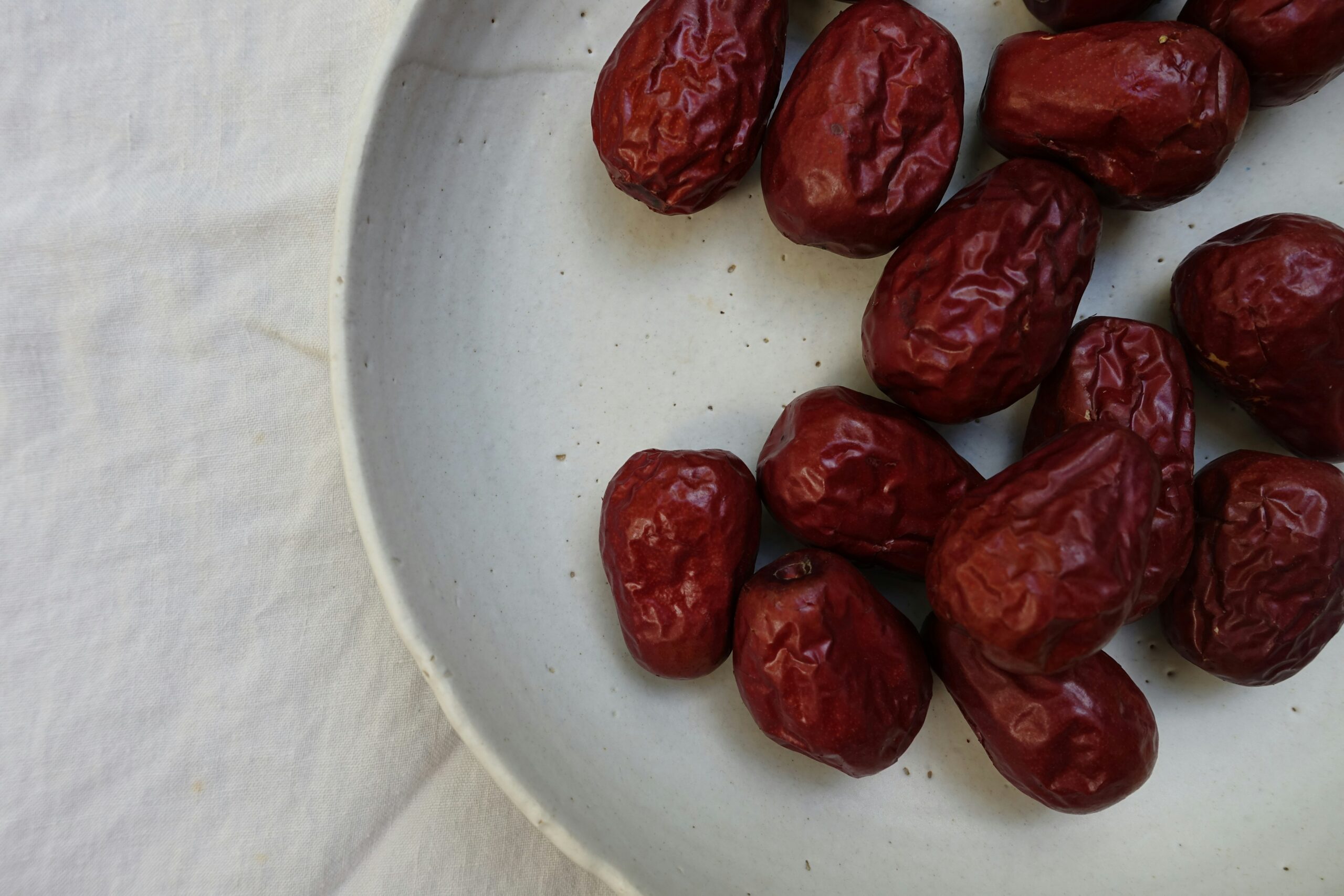They’re 8000 years old, have a sacred history, and are a perfect replacement for a chocolatey snack. Dig in as Aniqa Lasker sings the praises of these “tropical delights”.
I vividly recall many years ago, standing in the ‘World Food’ aisle in Morrisons, the moment my dad asked the sales assistant where he could find dates. I’ll never forget his look of bewilderment when the assistant told him: “There are websites available.”
His search for the innocent, sweet, caramel fruit for Ramadan had turned into an embarrassing recommendation for matchmaking online – a sour harvest. At the age of eight, my twin brother and I found this retort from the sales assistant hysterical. Fast forward 20 years, this tropical little delight has surged in popularity, but why are they suddenly so in demand? While in the holy month of Ramadan, let’s take a deep dive into why dates are not only nutritionally beneficial, but why their spiritual significance is so deeply rooted in Islam.
The Islamic calendar follows the phases of the lunar cycle. Each month, lasting either 29 or 30 days, begins with the sighting of the new crescent moon. The month of Ramadan falls in the ninth month of this calendar.
For Muslims, it is a time of reflection and abstaining from certain addictive habits for the mind and body. Those partaking in Ramadan abstain from food and drink between sunrise and sunset, allowing them instead to focus on prayer and connecting with God. Breaking the fast with dates at the time of sunset has always been a Ramadan tradition, as dates have a long history of being cultured in the Middle East for thousands of years.

A fruit with a long history and many traditions, dates are one of the oldest cultivated fruits and were known to be a core part of the Babylonian diet 8,000 years ago. This direct consisted mainly of common vegetables (peas, lettuces, beans, cucumbers, cabbage, turnips, chickpeas, garlic, shallots, cress, leeks, lentils, and beets) and common fruits (pears, apples, pomegranates, mulberries, quinces, melons, figs, peaches, grapes, dates, plums, cherries, and apricots).
Dates are mentioned 22 times in the Quran, more than any other fruit tree. Its consumption emulates one of the practices of Prophet Muhammed. Despite being high in fructose and glucose, dates have a low glycemic index, which means the sugars in the dates are slowly released into your bloodstream. When fasting, the body can easily develop mild health conditions such as low blood sugar, headaches, and lethargy; the nutrients found in dates can help alleviate these conditions.
Christina Choo, a nutritionist at Maximus UK, a global leader in health and employment service, says the low glycemic index “can be beneficial for diabetic and pre-diabetic individuals who need to manage their blood sugar levels very carefully.” She continues: “Dates are also a healthier swap as a snack for those who often have sugar cravings instead of having chocolates and sweets.”
Choo adds: “After a fast, your blood sugar levels are low. Having two or three dates can help to slowly increase your blood sugar level without spiking. You don’t want an energy spike because it can fall sharply within a short period, affecting your mood and hunger.”
Grown as clusters on palm trees in colours ranging from honey-yellow to red and brown, dates are sun-dried and can be kept fresh all year round. They can be refrigerated for six months or frozen for one year.
There are many varieties of dates like medjool and honey dates which are dried and some like Berhi and Hiann which are sold fresh. Medjool dates are the most popular and are harvested from the date palm, cleaned, sorted, and packaged straight away. There’s no processing and they’re never physically or chemically dried so they’re often found in the produce section at the supermarket. Although native to the Middle East, dates are now grown in the Mediterranean, Asia, USA, and Mexico. These trees are incredibly resilient and can thrive in harsh, dry, arid environments with limited water availability.
Though there is more of a focus on dates during Ramadan, many Muslims today consume the fruit throughout the year, regarding it as part of the blessed prophetic diet. And while there’s nothing like that first soft bite of caramel date delight when breaking your fast, don’t dig in too fast that you forget to give God thanks – bismillah.
